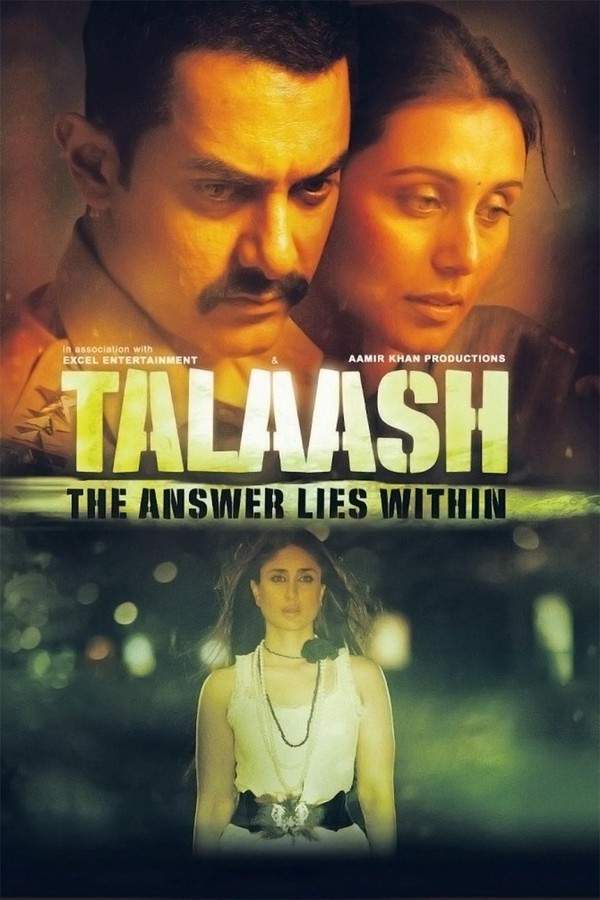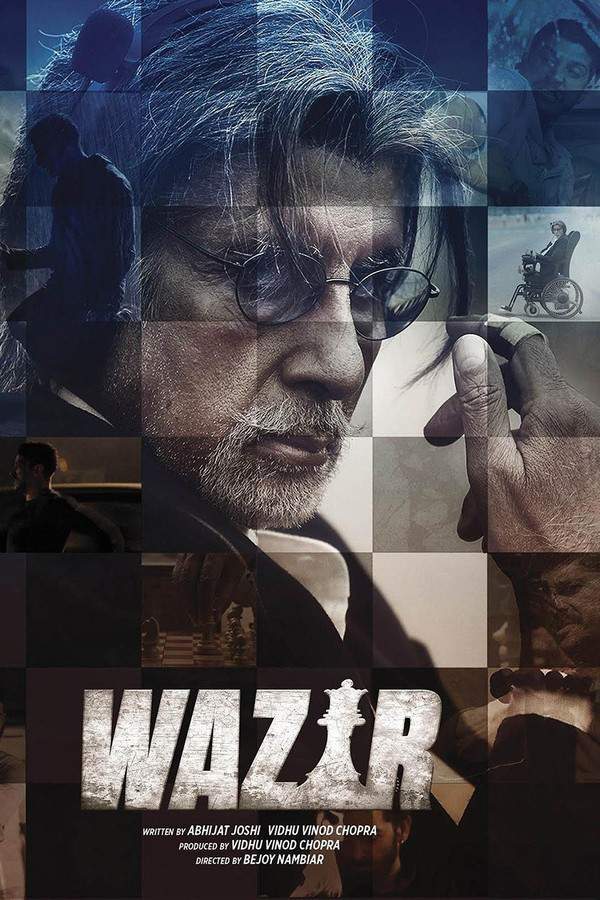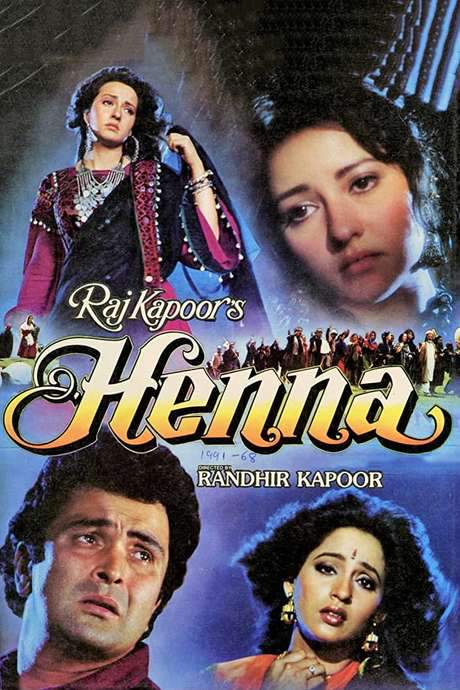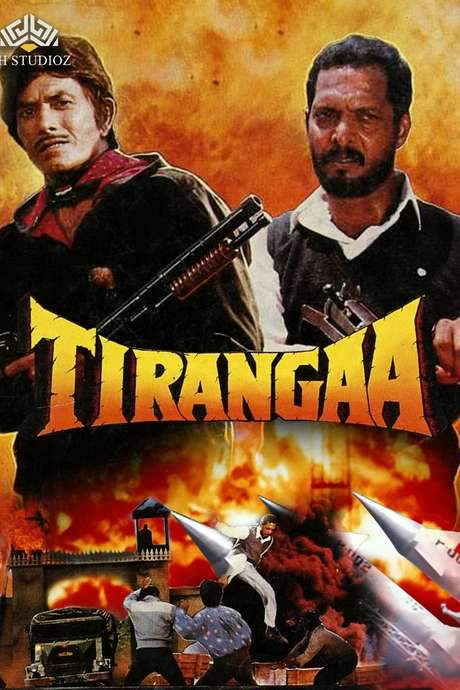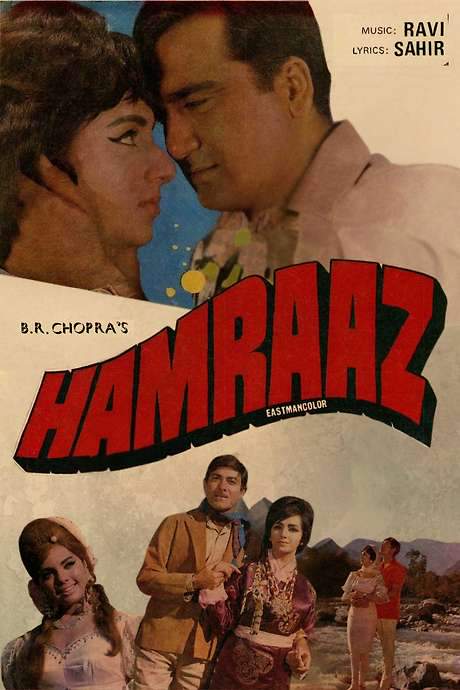
Haider 2014
Directed by

Vishal Bhardwaj
Test your knowledge of Haider with our quiz!
Haider Plot Summary
Read the complete plot summary and ending explained for Haider (2014). From turning points to emotional moments, uncover what really happened and why it matters.
In the turbulent backdrop of the Kashmir conflict in 1995, Dr. Hilaal Meer (Narendra Jha) finds himself in a perilous situation when he chooses to perform an appendicitis operation on the leader of a pro-separatist group in the confines of his home, much to the dismay of his wife, Ghazala. She is tormented by doubts about his loyalty. The following day, during a military raid, Dr. Meer is wrongfully accused of harboring terrorists. A chaotic shootout breaks out, culminating in the death of the separatist leader and Dr. Meer being taken away for brutal questioning.
In the aftermath, the doctor’s home is bombed to eliminate any remaining militants. Days later, their son, Haider, returns from university, desperate to uncover the truth about his father’s mysterious disappearance. To his shock, he discovers his mother displaying an unexpected closeness with her brother-in-law, Khurram, leading him to question her loyalty. Driven by concern, Haider embarks on a frantic search for his father alongside his fiancée, Arshia, a journalist.
As frustration mounts from his mother’s burgeoning relationship with Khurram and the lack of information about his father, Haider’s spirits begin to dwindle. However, Arshia encounters a man named Roohdar, who claims to have information about Hilaal’s fate. In their subsequent meeting, Roohdar reveals their shared experience of torture in the detention center, with Hilaal attributing his suffering to Khurram. Roohdar passes on a chilling message from Hilaal: a call for revenge against his uncle’s betrayal.
Fueled by rage and a fractured mental state, Haider struggles with the conflicting narratives. When Roohdar offers him a gun for retribution, Arshia inadvertently alerts her father, prompting Khurram to confine Haider to a mental institution. The next day, just as he prepares to confront Khurram, fate intervenes—preventing him from seeing his uncle in prayer—and he narrowly escapes capture.
Determined for vengeance, Haider receives guidance from Roohdar to undergo training in Pakistan. He informs his mother of his plans, asking for a final meeting where Ghazala reveals her own secrets about being coerced into revealing information about terrorists. Before the rendezvous concludes, tragedy strikes as Arshia’s father finds them, resulting in Haider killing him in self-defense and managing to flee.
Overwhelmed by grief after learning of her father’s death, Arshia succumbs to despair and takes her own life. Meanwhile, Ghazala discovers Roohdar’s contact through Arshia’s diary, setting a dangerous chain of events in motion. When Haider visits his father’s grave, he reflects deeply on mortality, only to be struck by the realization of Arshia’s demise. In a confrontation with her brother, a violent struggle ensues, leading to his death, and soon after, Khurram arrives with armed men, initiating a brutal clash.
In the chaos, amidst bullets and explosions, Haider finds himself alone against Khurram’s men. As Khurram corners him, Ghazala intervenes, pleading for a chance to speak with her son. Their emotional confrontation exposes the tragic cycle of revenge, but Haider, consumed by his desire for vengeance, remains deaf to her words. In a heart-wrenching moment, Ghazala, wearing a suicide vest, sacrifices herself, annihilating her surroundings and leaving Khurram severely injured.
In the aftermath of the devastation, Haider is engulfed in sorrow as he approaches his mother’s remains. Against his father’s wishes and Khurram’s desperate pleas for death to relieve his guilt, Haider recalls Ghazala’s wisdom: “revenge only results in revenge.” Choosing a path of mercy over vengeance, Haider walks away, leaving a broken legacy of tumultuous conflict behind.
Haider Timeline
Follow the complete movie timeline of Haider (2014) with every major event in chronological order. Great for understanding complex plots and story progression.
Dr. Meer's Choice
In 1995 Kashmir, Dr. Hilaal Meer makes a dangerous decision to perform an appendicitis operation on a separatist leader in his home. This choice puts him at odds with his wife Ghazala, who fears for his safety and questions his loyalty to their family.
Military Raid
The following day, Dr. Meer's home is stormed during a military raid, where he is wrongfully accused of harboring terrorists. A chaotic shootout occurs, resulting in the death of the separatist leader and leading to Dr. Meer’s capture and brutal interrogation.
Home Bombing
In an attempt to eliminate any perceived threat, Dr. Meer's home is bombed, leaving Ghazala in shock and despair. This act intensifies the already precarious situation for the family, exacerbating their struggles amidst the conflict.
Haider Returns
Amidst the chaos, their son Haider returns from university, intent on uncovering the truth about his father's disappearance. His desire for answers is complicated by witnessing his mother's unusual closeness with her brother-in-law, Khurram.
Frantic Search
Driven by concern for his father and frustration at his mother's relationship with Khurram, Haider embarks on a frantic quest for answers with his fiancée, Arshia. Their search intensifies as they dig deeper into the murky circumstances surrounding Dr. Meer's fate.
Encounter with Roohdar
In a stroke of luck, Arshia meets Roohdar, who claims to have critical information about Hilaal's fate. During their meeting, Roohdar shares harrowing accounts of torture from the detention center, revealing Hilaal's accusations against Khurram.
Haider's Turmoil
Conflicted by the unraveling truths and filled with rage against Khurram, Haider confronts his own feelings and considers Roohdar's offer of a weapon for revenge. However, Arshia’s alarmed reaction leads to Haider being confined in a mental institution by Khurram.
Escape from Captivity
On the brink of confronting Khurram, Haider narrowly escapes capture, missing a pivotal chance to seek revenge. This close call only amplifies his determination and deepens his resolve to avenge his father.
Final Meeting with Ghazala
Preparing for a vengeful path, Haider informs his mother about his intentions. In a fraught meeting, Ghazala either reveals her own past coerced revelations or fails to protect him, leading to an unexpected confrontation.
Tragedy Strikes
A fateful encounter occurs when Ghazala's husband finds Haider meeting with her, leading to a desperate situation. In self-defense, Haider takes a dramatic step and in a moment of panic, he kills his mother's husband.
Arshia's Despair
Overwhelmed by the recent events and the loss of her father, Arshia spirals into despair, ultimately choosing to end her own life. This tragic turn devastates Haider and further fuels his rage and feelings of betrayal.
Ghazala's Discovery
In the wake of Arshia's death, Ghazala uncovers Roohdar's contact information through her daughter's diary. This discovery propels her into a dangerous game of secrets that could change everything for her family.
Haider's Reflection
Visiting his father's grave, Haider grapples with personal loss and the reality of his life choices. The graveyard reflection leads him to confront the painful truth of his circumstances, especially following Arshia's tragic passing.
Clash with Khurram
In a climactic confrontation, Haider faces off against Khurram and his armed men. As violence erupts, the bitter struggle symbolizes the deep-seated cycle of vengeance that binds them.
Ghazala's Sacrifice
In a heart-wrenching moment, Ghazala intervenes in the fight, wearing a suicide vest. In an act of desperation, she sacrifices herself to save Haider, an act that leaves an indelible mark on the ongoing conflict and on her son's heart.
Haider Characters
Explore all characters from Haider (2014). Get detailed profiles with their roles, arcs, and key relationships explained.
Haider
Haider, portrayed by Shahid Kapur, is a deeply conflicted character driven by the desire to uncover the truth about his father's disappearance. His journey from a university student to a man consumed by vengeance reveals his inner turmoil and the impact of the surrounding chaos on his psyche. Overwhelmed by loss and betrayal, he struggles with his moral compass while seeking justice.
Ghazala
Ghazala, played by Tabu, is a complex character torn between her loyalty to her husband and the survival of her family amidst chaos. As a mother, her emotional struggles are felt throughout the film as she navigates her husband's choices and her son's anger. Her tragic decision at the film's climax highlights the depth of her sacrifices in a world steeped in conflict.
Khurram
Khurram, portrayed by Kay Kay Menon, is Haider's uncle, whose actions lead to profound ramifications within the family. He embodies the theme of betrayal, as his conflicting loyalties and relationship with Ghazala complicate the narrative. His character is pivotal in the exploration of vengeance and moral ambiguity throughout the film.
Arshia
Arshia, played by Shraddha Kapoor, is Haider's fiancée and a journalist. She represents the voice of reason in Haider's tumultuous world, often grounding him in moments of despair. Her tragic fate serves as a catalyst for Haider’s actions, emphasizing the personal costs of the political turmoil surrounding them.
Haider Settings
Learn where and when Haider (2014) takes place. Explore the film’s settings, era, and how they shape the narrative.
Time period
1995
The year 1995 marks a significant period during the Kashmir conflict, characterized by political unrest and violence. During this time, the lives of many were disrupted, as accusations, military raids, and personal tragedies unfolded against the backdrop of a struggle for identity and autonomy. The impacts of these events continue to resonate in contemporary society.
Location
Kashmir
Kashmir is a region known for its breathtaking landscapes, including lush green mountains and picturesque valleys. It has been a focal point of conflict, particularly in the 1990s, as political and separatist struggles unfolded, affecting the lives of its residents. The beauty of Kashmir starkly contrasts with the turmoil experienced during this period.
Haider Themes
Discover the main themes in Haider (2014). Analyze the deeper meanings, emotional layers, and social commentary behind the film.
🔗
Revenge
Revenge serves as a central theme in 'Haider,' highlighting the destructive cycle it perpetuates. The protagonist, Haider, is driven by a desire for vengeance against those he perceives as traitors, including his uncle Khurram. However, as the story unfolds, it becomes apparent that revenge only deepens the pain and suffering of all involved, leading to further tragedy and loss.
💔
Loss
The theme of loss permeates 'Haider,' as characters grapple with the consequences of violence and betrayal. Haider's journey is marked by the death of loved ones and the heartbreaking impact of choices made in moments of despair. This theme serves to remind viewers of the fragility of life and the lasting scars left by conflict.
🙇♂️
Identity
Identity plays a crucial role in 'Haider,' as characters confront their loyalties and the meaning of belonging. Haider's search for the truth about his father's disappearance forces him to question not only the morality of those around him but also his own beliefs and values. This exploration highlights the complex interplay between personal and political identity amidst a backdrop of conflict.

Coming soon on iOS and Android
The Plot Explained Mobile App
From blockbusters to hidden gems — dive into movie stories anytime, anywhere. Save your favorites, discover plots faster, and never miss a twist again.
Sign up to be the first to know when we launch. Your email stays private — always.
Haider Spoiler-Free Summary
Discover the spoiler-free summary of Haider (2014). Get a concise overview without any spoilers.
In the windswept valleys of 1990s Kashmir, a landscape scarred by unrest becomes more than a backdrop—it pulses with the quiet desperation of ordinary lives caught in extraordinary circumstances. The film paints the region with a stark, lyrical realism, blending the claustrophobic tension of militarized streets with moments of lingering beauty that remind the audience of the land’s enduring soul. This uneasy equilibrium sets the stage for a story that feels both intimate and resonant, as every whisper of the wind seems to carry hidden histories and unspoken fears.
At the heart of the narrative is Haider, a university student returning home to a family fractured by absence and uncertainty. He carries the weight of his father’s sudden disappearance, a mystery that reverberates through the household and the wider community. The young protagonist’s determination to uncover the truth is tempered by the fragile bonds he shares with those around him—especially his mother, Ghazala, whose quiet resilience masks a tangled inner life, and his charismatic uncle, Khurram, whose presence introduces an undercurrent of unease.
The emotional core of the film is further shaped by Arshia, a sharp‑witted journalist and Haider’s confidante, whose fierce curiosity mirrors his own quest while adding a layer of intellectual challenge and tender companionship. Roohdar, a weary figure who bears the scars of conflict, offers Haider a glimpse of the larger forces at play, hinting at the moral complexities that pervade the region. Their interactions are imbued with a quiet intensity, each conversation a careful dance between hope and suspicion.
Through muted colors, lingering shots of mist‑cloaked streets, and a score that weaves traditional motifs with contemporary tension, the film cultivates a tone that is both haunting and hopeful. It invites the viewer to linger in the spaces between truth and rumor, urging a contemplation of loyalty, identity, and the price of seeking answers in a world where every revelation bears the weight of generational pain.
Can’t find your movie? Request a summary here.
Movies with Similar Twists and Themes
Uncover films that echo the narrative beats, emotional arcs, or dramatic twists of the one you're exploring. These recommendations are handpicked based on story depth, thematic resonance, and spoiler-worthy moments — perfect for fans who crave more of the same intrigue.
Featured on this page

What's After the Movie?
Not sure whether to stay after the credits? Find out!
Explore Our Movie Platform
New Movie Releases (2026)
Famous Movie Actors
Top Film Production Studios
Movie Plot Summaries & Endings
Major Movie Awards & Winners
Best Concert Films & Music Documentaries
Movie Collections and Curated Lists
© 2026 What's After the Movie. All rights reserved.



